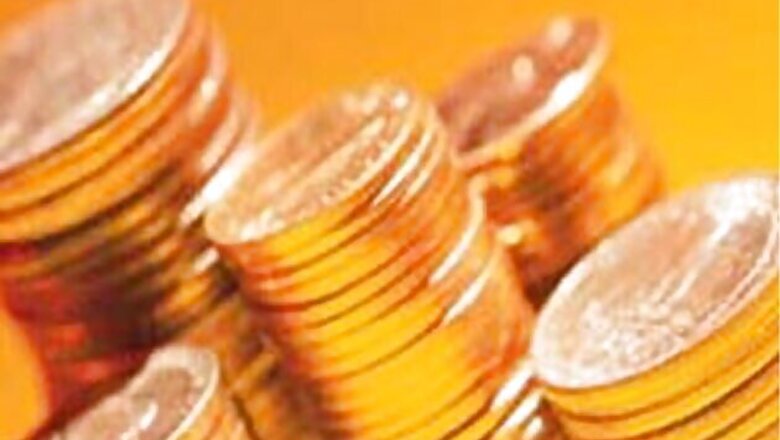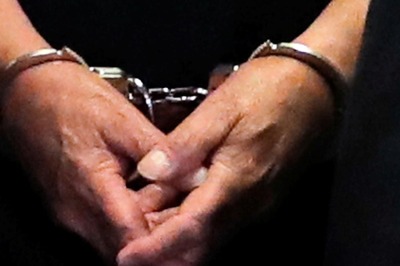
views
New Delhi: Amid a global crackdown against alleged black money in secret accounts of Swiss banks, their bankers are selling a new safe-haven idea to their rich clients from India and other countries -- the high-value 1,000 franc notes to be stored in safe deposit boxes.
These boxes -- kept inside the premises of Swiss banks -- are also said to be being used to stash gold, diamond, paintings and art works among other valuables – apparently because of limited risk of catching the preying eyes of foreign governments having signed banking information exchange treaties with Switzerland.
According to industry sources, bankers are telling their rich clients that Switzerland's tax and information exchange treaties with India and other countries are mostly limited to funds in customers' savings, deposit and investment accounts, and do not apply to the safe deposit boxes.
As a result, the demand has soared to record high levels for the safe deposit boxes and the 1,000 Swiss franc banknotes in Switzerland, as rich of the world are rushing to get them.
As per the data available with Switzerland's central bank SNB (Swiss National Bank), the thousand-franc notes now account for 60 per cent of total value of all Swiss banknotes in circulation, up from about 50 per cent a year ago.
Replying to queries, SNB confirmed that there was a significant surge in demand for thousand-franc notes and admitted that this could be due to a trend to store the money and a higher demand was being noticed from abroad for these high-value currency notes.
SNB did not reply to specific queries about demand from India and said that it did not have any data on deposit boxes.
Just one thousand-franc banknote is worth about Rs 60,000 in Indian currency, making it easier to store large amount of money in form of these notes.
The total value of thousand-franc notes currently in circulation is Rs two trillion (32.5 billion Swiss francs).
Also, Switzerland is among the few major countries to have denomination of as high as 1,000, while the highest value banknotes in the UK and the US are only 50 pounds (about Rs 4,300) and 100 dollars (Rs 5,500), respectively.
The US used to have high-value notes like USD 500, USD 1,000, USD 5,000 and USD 10,000 earlier, but these currency bills were printed for the last time in 1945 and were not even in circulation since 1969.
Amid allegations of Indians stashing huge amounts of illicit wealth abroad, including in Swiss banks, the Indian government said in a White Paper in May that it is making various efforts to bring back the unaccounted money.
As the global pressure mounts on Switzerland to give access to their banking account details, the demand is growing for thousand-franc notes as these high-value currency bills make it easier to store large amount of cash.
Besides, the secrecy measures attached with safe deposit boxes are leading to many banks running short of these boxes and are now offering them only to very rich clients.
While there are no official figures for these boxes, the commission and fees earned by banks for such facilities appear to be rising. During 2011, Swiss banks registered a decline in their overall commission earnings, as also in their commission income from core banking operations, the SNB data shows.
However, their 'other commissions', which includes royalty and rental fees for safe deposit boxes, rose sharply.
Switzerland government's tax department did not reply to queries about the soaring demand for safe deposit boxes and thousand-franc notes, as also about the possible use of safe deposit boxes to store illicit wealth.
They also did not respond to queries about the possible use of these safe deposit boxes to circumvent the tax treaties and information exchange agreements between Switzerland and other countries, including India.
While Indians are alleged to have stashed billions of dollars worth black money in Swiss banks, the official SNB data puts the funds of Indian clients in Switzerland's banks at a modest 2.18 billion Swiss francs (Rs 12,700 crore) -- which is just 0.14 per cent of total foreign wealth there.
Indians' money in Swiss banks rose for the first time in five years in 2011.
These official figures, described by SNB as 'liabilities' of Swiss banks towards their clients from various countries, do not indicate towards the quantum of the much-debated alleged black money held by Indians or other nationals in the safe havens of Switzerland.
Also, SNB's figures do not include the money that Indians or other nationals might have in Swiss banks in others' names.
Noting that there was no single all-explaining reason for the increasing demand for 1,000 franc notes, an SNB spokesperson said: "We assume that the higher demand is in parts due to the trend to store value in Swiss franc notes -- which is a phenomenon often observed in phases of low interest rates.
"We further think that the higher demand is to some extent originating from abroad," the spokesperson said.
The SNB did not reply to specific queries about the demand coming from Indian clients of Swiss banks for thousand-franc notes and safe deposit boxes.
The treaty between India and Switzerland, which was revised this year, allows India to seek information on banking account details of Indians in Swiss banks after providing some concrete details of the alleged offenders.
However, the treaty explicitly disallows any 'fishing expedition' -- a term used for searching across the database of Swiss banks with an aim to find something interesting.
The total overseas funds in Switzerland's banking system stood at 1.53 trillion Swiss francs (about Rs 90 trillion) at the end of 2011, which included 2.18 billion Swiss francs (Rs 12,700 crore) belonging to Indian individuals and entities.




















Comments
0 comment